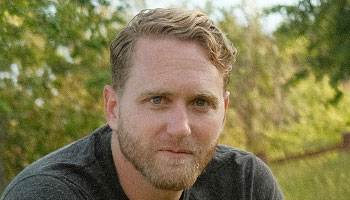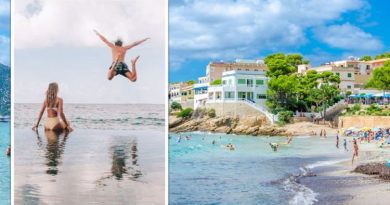Philip Bates of TMC Hospitality on the hotel company's 'social group travel' model
When TMC Hospitality launched its Bode hotel brand in 2018 in Nashville, it was targeting what the company dubbed “social group travel.” The goal was to blend the private rooms and shared common spaces that vacation rentals offered with a selection of hotel amenities, such as a barista-crafted cappuccino in the morning. Following the pandemic, the company only sees this niche growing. On Nov. 1, it will launch Drift, a slightly more upscale brand with a similar model to Bode, in San Jose del Cabo, on Mexico’s Baja peninsula. TMC Hospitality CEO and co-founder Philip Bates spoke with Travel Weekly about the company’s expansion and the pandemic’s impact on how people travel.
Q: Bode launched in Nashville, expanded to Chattanooga, Tenn., and there are plans for new ones in Greenville, S.C.; Savannah, Ga.; and Palm Springs, Calif. How do you choose the markets?
A: We operate under what we call our hub-and-spoke model. And what we mean by that is we want to choose a region, put our foot down there, and then expand within a three-hour radius from that area. It makes growing and scaling a little bit easier. In Nashville, we chose that city, No.1, because our data told us that a lot of social group travelers were going there. No. 2 is that it is a market that readily accepts boutique-style hotels. Not every market is ready for that. And when you look at Nashville and you draw a three-hour radius, you have Atlanta, Chattanooga and very quick flights to Charlotte, Charleston and D.C. So it’s a very good hub for the Southeast. And then Palm Springs is actually in our backyard. We’re based in Irvine, Calif., and in similar ways to Nashville, Palm Springs is very much a leisure market.
Q: How do the hotel amenities, like concierge services and housekeeping function at Bode and Drift?
A: For housekeeping, we only clean when a guest leaves, but if they want to have the room cleaned while they’re there, they can just text message, and we’ll clean it that day. And that is an add-on cost. For concierge services, what we do is a certain amount of street-level diligence when we’re going into markets. We try to find the best bartenders to ask about what bars to go to, local recommendations on restaurants. We upload [information locals provide] into our tech platform, Eve, so that when people text [looking for recommendations for bars, etc.], we have prepopulated a lot of those recommendations. Then, if the [guest’s] question is a little too nuanced for our automated component, we have a human as a backup who answers those.
Q: How has the pandemic impacted your strategy as you expand the brands?
A: It’s making us more bullish. One of the long-term effects for social group travel is that people are really reflecting deeply on life, and they’re valuing free time, or they’re valuing time with the people they care about. As that pertains to how we design and build, we are definitely leaning more into amenities for social group activity. So, in Palm Springs, we’re thinking about putting in a community pizza oven where you can come with your group and learn how to make Neapolitan-style pizza.
Q: What other trends do you see defining hotel development in the next few years?
A: Technology. The hotel industry is full of a lot of big brands and big players, and as we know from really any industry, those organizations have the hardest time evolving or innovating. We are at a point where RevPAR has been hampered for a sustained period of time, and while it is increasing, it’s not increasing fast enough to offset things like rising labor wages and overall costs of running a property. That’s a real challenge, and it creates an opportunity for the younger companies starting from a clean slate to invest in technology early on so that it can become a foundational part of their organization rather than having to make large pivots to make technological improvements.
Source: Read Full Article




